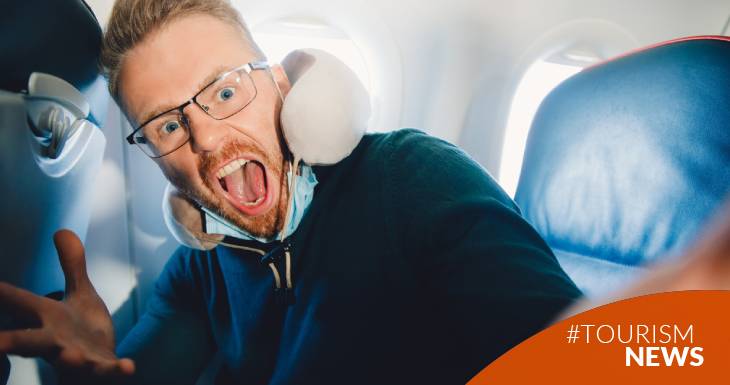It is increasingly common to come across news about disruptive passengers who have disrupted normal flights, and this trend has been confirmed by the latest report from the International Air Transport Association (IATA).
IATA had been warning about the seriousness of these incidents for some time:
The most recent data reveals that during the year 2022, there was one case of unruly behavior for every 568 flights, in contrast to the figure of one case for every 835 flights in 2021. The most frequent incidents in 2022 included disobedience to crew instructions, verbal harassment and excessive alcohol consumption. Although incidents of physical assault are still rare, they recorded an alarming 61% increase compared to 2021, resulting in one case per 17,200 flights.
Among the most common behaviors of these troublesome passengers are smoking on board, not fastening their seat belt when required, exceeding the carry-on luggage limit, directing insults at the crew personnel and acts related to excessive alcohol consumption.
Inappropriate passenger behavior and its consequences:
The inappropriate behavior of some passengers is uncomfortable for other passengers, as well as for the crew and pilots. This can manifest itself in ways ranging from the need to divert flight to address specific issues to creating a general atmosphere of discomfort and anxiety.
Cabin crew and pilots also face obvious challenges in these situations. A passenger with disruptive behavior can pose a direct threat to the safety of the crew. If the situation becomes violent, aggressive or threatening, the risk can increase quickly. Constant stress, tension and confrontation can cause emotional exhaustion and affect the overall well-being of the crew and pilots, as disruptive behaviors can force changes to the planned route and cause unwanted interruptions.
Causes of conflictive behaviors:
- Alcohol and Drugs: Excessive consumption of alcohol or psychoactive substances before or during the flight can decrease inhibition and lead to reckless behavior.
- Frustration: Delays, cancellations, seat changes or other operational problems can cause frustration among passengers.
- Fear of flying: Some people experience anxiety or fear when flying, which can trigger unusual behaviors, increase tension, and lead to impulsive reactions.
- Disobedience to health regulations: In times of pandemic, failure to comply with health measures, such as the use of masks, has led to conflicts between passengers and crew.
Prevention and solutions:
To address this problem, airlines, aviation authorities and passengers have an important role:
- Education: Airlines can carry out educational campaigns to raise passenger awareness about the rules of behavior on board and the consequences of disruptive behavior.
- Alcohol restrictions: Limiting the sale and consumption of alcohol on flights can help prevent alcohol-related incidents.
- Sanctions: Authorities should impose severe penalties on passengers who engage in disruptive behavior, which could deter future incidents.
Addressing this issue requires the collaboration of airlines, authorities and passengers to ensure that an airplane remains a safe and comfortable place for all travelers.


